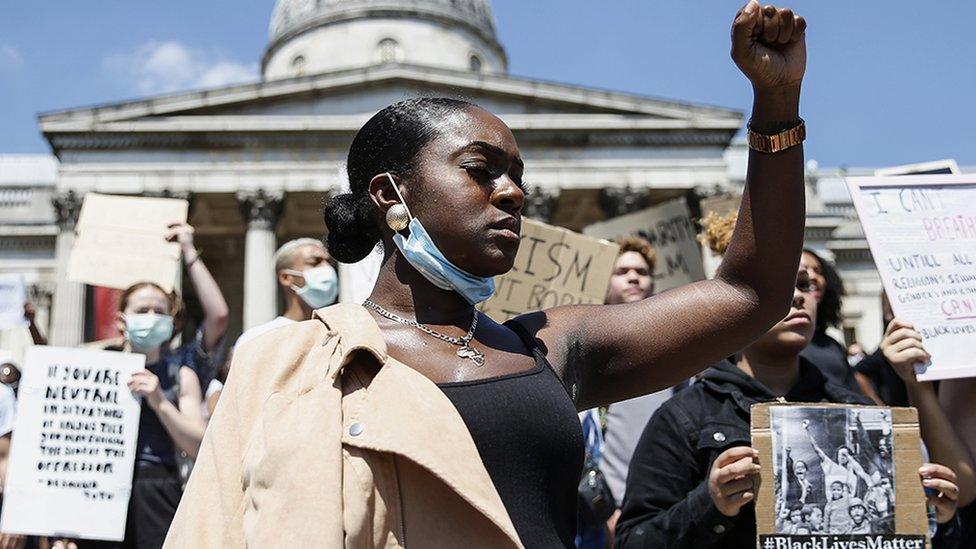George Floyd death: UK protests are 'unlawful'
- Published
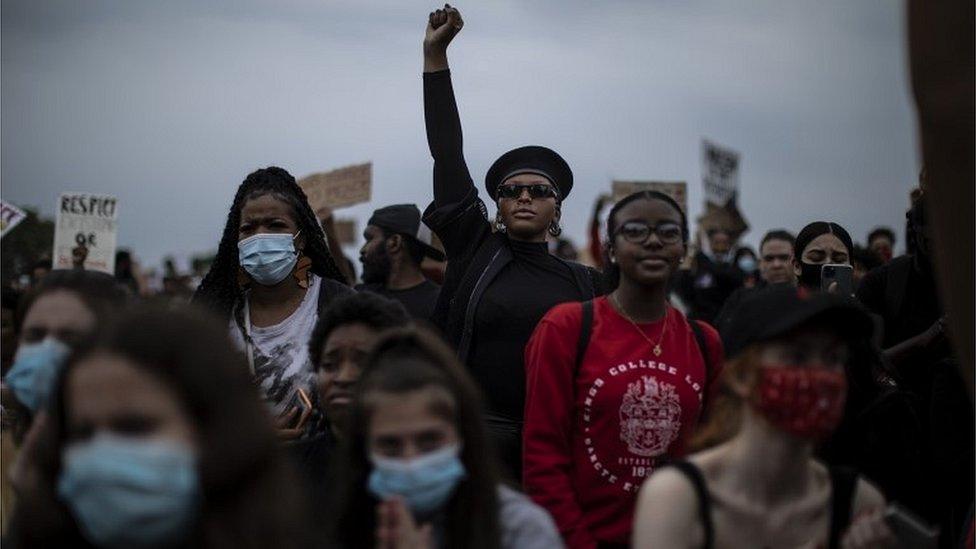
Thousands of protesters gathered in London's Hyde Park on Wednesday
Mass protests held in the UK over the death of George Floyd are considered unlawful under current lockdown laws, a senior Met Police officer has said.
Thousands attended a march through London on Wednesday, while others have taken place around the UK.
Deputy Assistant Commissioner Laurence Taylor said the "health protection regulations are really clear that it is unlawful."
But he added that those who do go out should "observe social distancing".
Protests began in the US after a video showed Mr Floyd, 46, being arrested on 25 May in Minneapolis and a white police officer continuing to kneel on his neck even after he pleaded that he could not breathe.
John Boyega gives emotional protest speech: "Black men, it starts with you"
Thirteen people were arrested during Wednesday's march after some scuffles broke out.
Seven men and two women have been released on bail until early July, while four other men have been released under investigation.

What do lockdown laws say about protests?

England now has the loosest lockdown in the UK, with no restrictions on going outside. But the rules (officially known as regulations) don't explicitly say anything about whether people can protest or not.
However, regulation seven restricts public gatherings to no more than six people.
The law defines a "gathering" as a meeting involving "social interaction with each other, or to undertake any other activity". And so that means, pretty clearly, that a protest is currently illegal along with any other activity that could increase the spread of the virus.

DAC Taylor told the Today programme the "vast majority" of people at the march had been peaceful but described the event as "really challenging" for police.
"It is unlawful under the health protection regulations, that is really clear, but the challenge with policing is it's not an exact science. We have to police what's in front of us," he said.
Speaking about planned future events, the senior Met officer said the force "recognise the really strong feelings that people have, but we would urge people not to gather in these large groups".
"If they do come out, then we would ask them to observe that social distancing [and] think about those around them," he added.
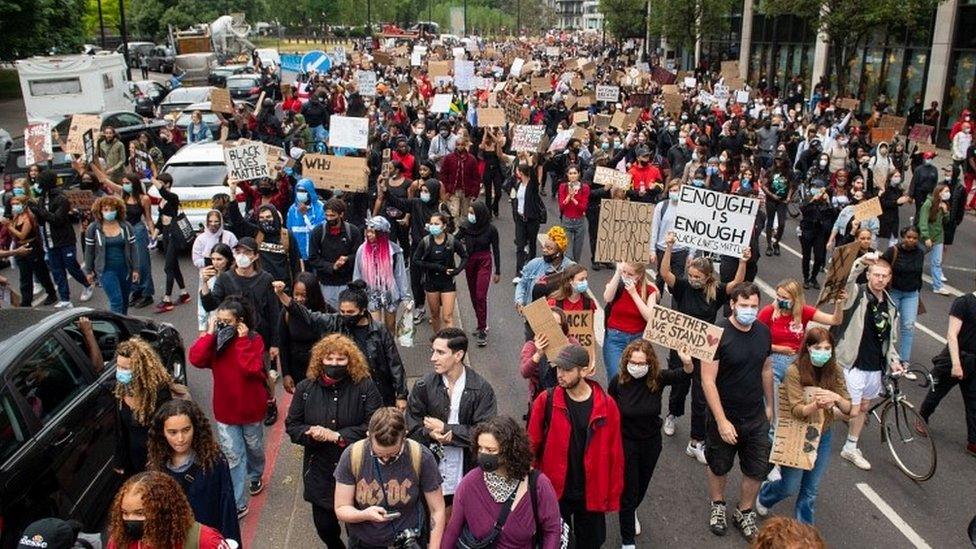
On Wednesday, people marched through central London from Hyde Park to Victoria Station
UK chief constables previously issued a joint statement saying the right to lawful protest was a "key part of any democracy", but they stressed coronavirus restrictions remained.
Mayor of London Sadiq Khan said that in other circumstances he would probably join such marches but "I'm not going... for the simple reason we're in a global pandemic".
"I understand how strongly people feel about this, particularly black Londoners and black Britons, but please make sure you follow the advice if you're going to protest," he added.
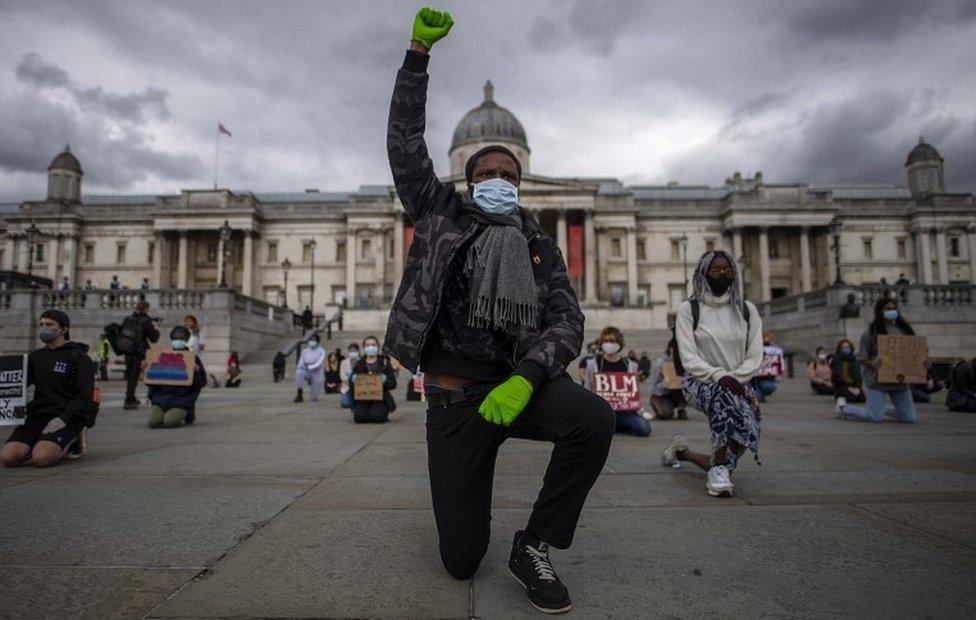
More protesters gathered in Trafalgar Square on Friday and protests have been held elsewhere too
- Published4 June 2020
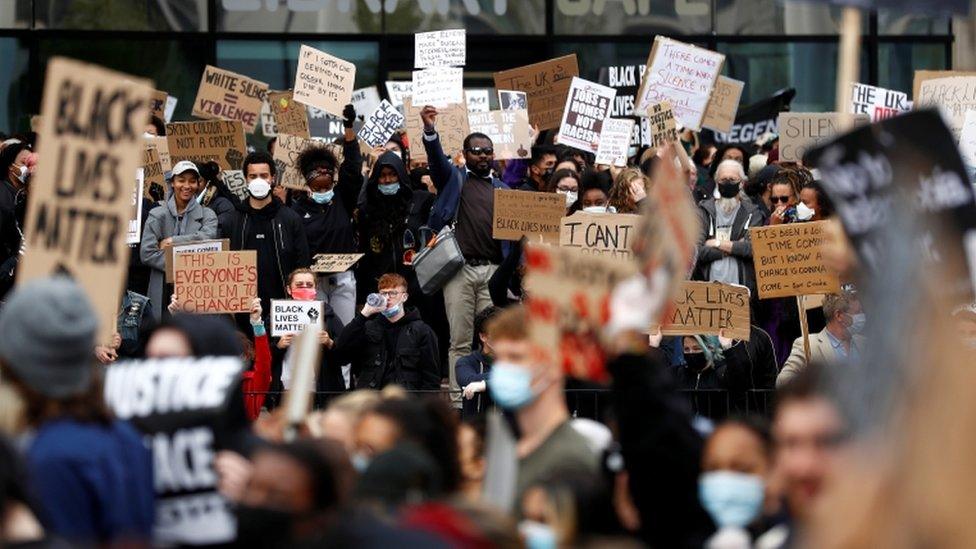
- Published4 June 2020
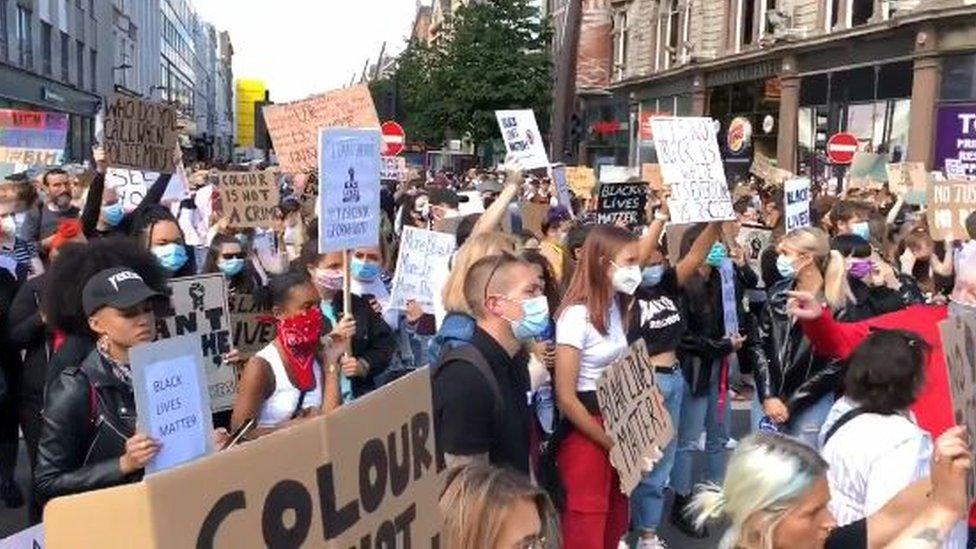
- Published3 June 2020
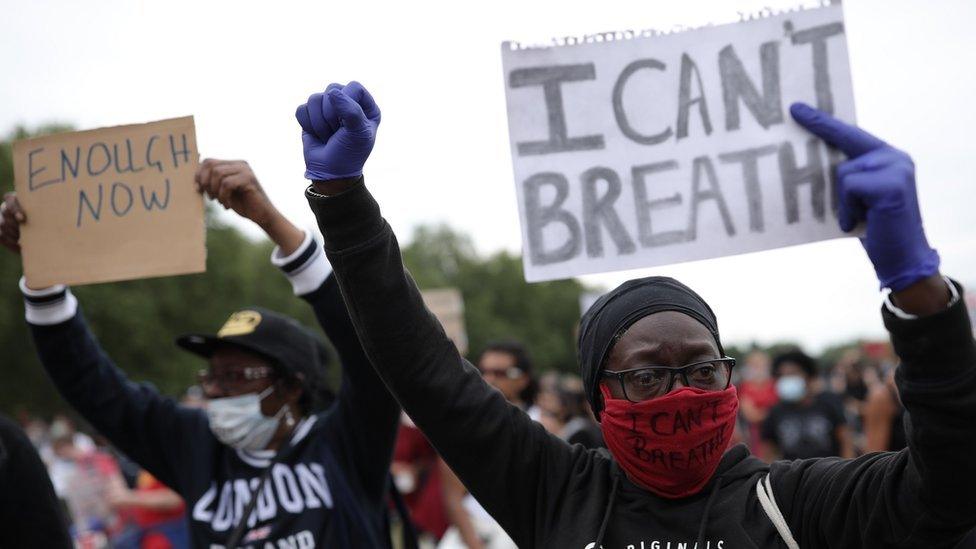
- Published31 May 2020
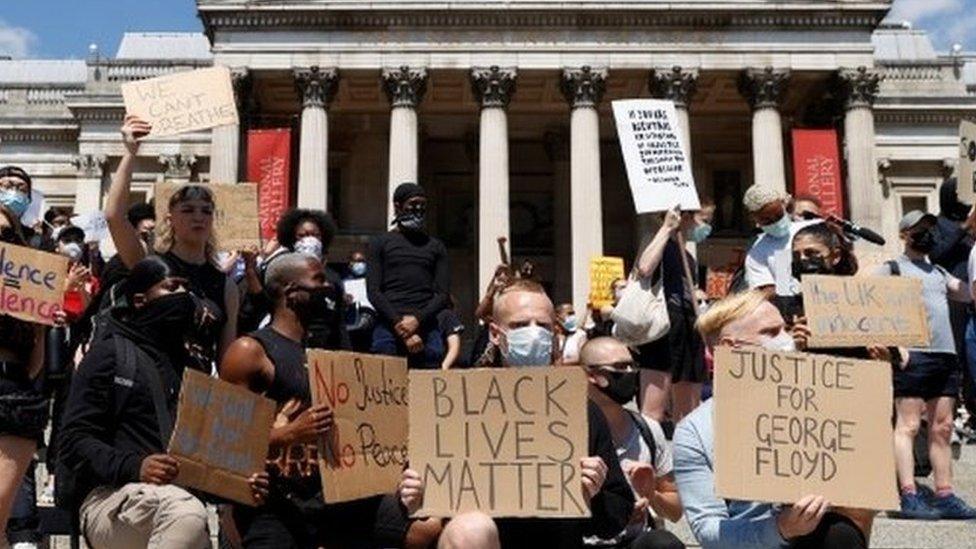
- Published2 June 2020
